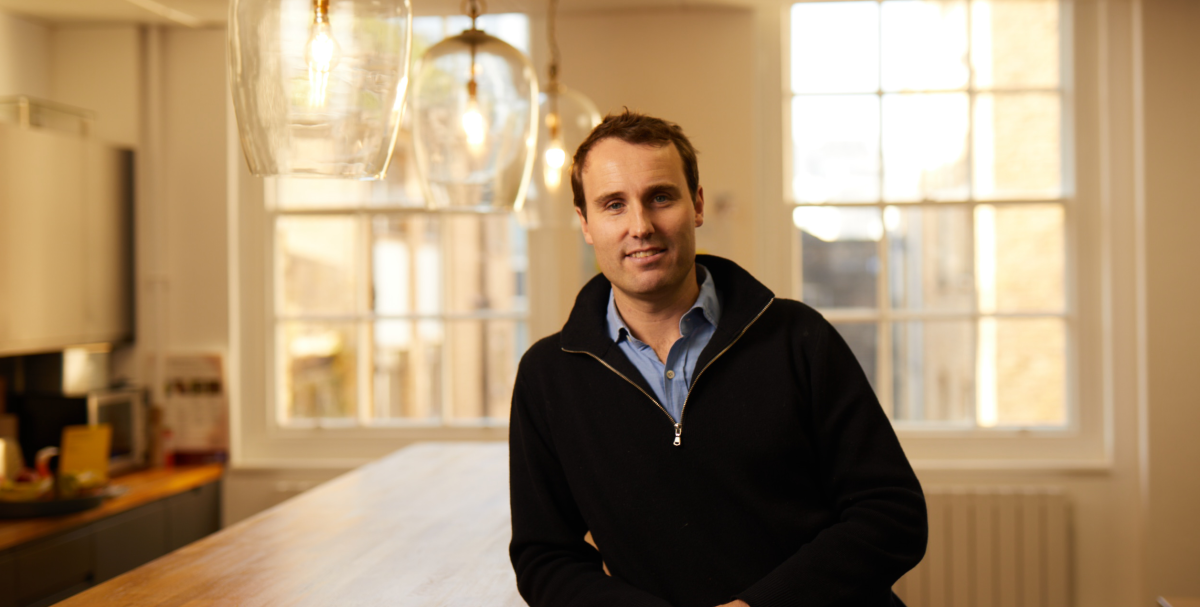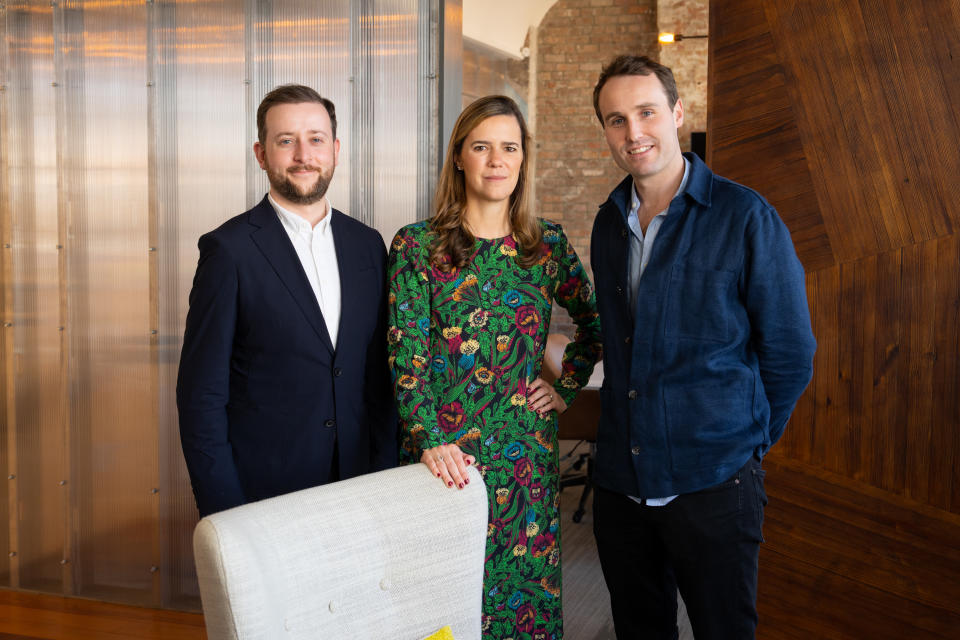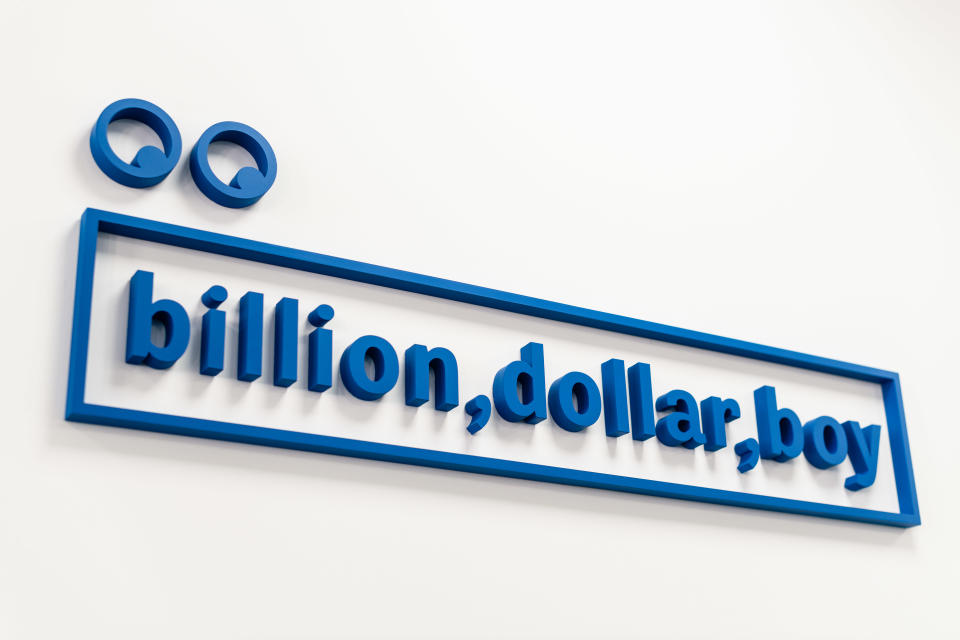SOCIAL
Ed East, Billion Dollar Boy CEO

Ed East is global CEO and co-founder of Billion Dollar Boy (BDB), the UK’s fastest-growing influencer agency.
BDB has grown the influencer marketing industry by 62%, helping the business to clinch a spot in the Financial Times’s list of the 1000 fastest growing companies in Europe – the first and only influencer marketing agency featured.
Founded in 2014 with staff of around 150 across the business, BDB forecast $70m revenue for 2023.
My career hasn’t been long but I was finding it hard to find a job after leaving university in the US. I applied to companies like Google in digital marketing-related jobs and kept getting through to the last rounds of the graduate trainee schemes but not progressing.
I met for a drink with a family friend called Oliver Pawle, who had an idea to set up a charitable organisation that would support young entrepreneurs in their journey and give them all the essential elements needed to set up a business. I found it fascinating.
Read More: My first boss: Martin Warner, ‘UK’s Elon Musk’
Previously an investment banker Oliver is now chairman at executive recruiters Korn Ferry. I joined Oliver as an intern, with the hope of perhaps joining his scheme in its inception.
In the meantime, there were so many things I learned.
Oliver simply had an idea, with a great cause supporting young individuals. Since 2011 New Entrepreneurs Foundation has now had 350 alumni. It has since merged with the Centre for Entrepreneurs. Further, 170 businesses have been set up, with over 5,000 jobs created with a combined value of £620m.
The first lesson I took away was always take action and drive it into reality, otherwise it will never become something. Three weeks after our drink, he had hired me as a junior and we were up and running, the first programme launching that autumn.

Oliver is always energetic and optimistic which gives off energy to others. He also took time to be interested and listen. I take the same positive energy approach at BDB – even when giving potentially bad news, I try to give a positive spin.
Over his career, he also built a valuable network and that’s one of the reasons he is now in executive search. It was clear to me that the network was the only way the foundation would succeed. We had to go out to businesses who had never heard anything like this before.
“You need to treat people with the utmost respect when you’re on the way up, as who knows what will happen on the way back down”, he once said. In 2011, I joined the programme and shadowed at a big digital marketing agency as its new entrepreneur.
Having seen Oliver and his drive to action, I was inspired. In my spare time I worked on a database connecting blogs – an incarnation of influencer marketing today – to brands. Having moved to Los Angeles and seen YouTubers and Instagrammers, I realised it was this market which needed to be connected all together to brands.
In 2014, Billion Dollar Boy was born. We wrote a long business plan in order to pay us a salary. The genesis of influencer marketing has not changed, but the route has consistently taken us in different directions.

As we are a bigger business, it’s much harder to have an idea and follow that as there are so many people and stakeholders involved. We are much less entrepreneurial while the last few years we have honed in and perfected what we are good at, as opposed to trying lots of new things.
There are always new platforms and creators emerging. Influencers have democratised this creation of content, can publish via their owned platform on social media and it has changed the way brands can talk to audiences.
While we have done mass scale influencer marketing over the last nine years, creator advertising is now coming to the fore, one where we want to double down over the next few years. We are taking the asset influencers make and using it for many different forms of advertising. For example, we recently had the biggest billboard in Australia, in Melbourne, where the content is made by influencers.
Read More: Sally Walker, Britain’s spy chief on her first boss
The creator economy term has now been coined over the last 18 months in building businesses with influencers, leveraging the audiences and the communities they’ve built to create new products and services. It takes us out of the agency model and enables us to co-invest and redefine the way businesses are being built.
Oliver probably had faith in seeing me start something and it’s probably why he pushed and supported me. He may be a bit surprised at where I’ve got to, but he will undoubtedly be happy about it.
Watch: Is it financially worth going to university?
SOCIAL
Snapchat Explores New Messaging Retention Feature: A Game-Changer or Risky Move?

In a recent announcement, Snapchat revealed a groundbreaking update that challenges its traditional design ethos. The platform is experimenting with an option that allows users to defy the 24-hour auto-delete rule, a feature synonymous with Snapchat’s ephemeral messaging model.
The proposed change aims to introduce a “Never delete” option in messaging retention settings, aligning Snapchat more closely with conventional messaging apps. While this move may blur Snapchat’s distinctive selling point, Snap appears convinced of its necessity.
According to Snap, the decision stems from user feedback and a commitment to innovation based on user needs. The company aims to provide greater flexibility and control over conversations, catering to the preferences of its community.
Currently undergoing trials in select markets, the new feature empowers users to adjust retention settings on a conversation-by-conversation basis. Flexibility remains paramount, with participants able to modify settings within chats and receive in-chat notifications to ensure transparency.
Snapchat underscores that the default auto-delete feature will persist, reinforcing its design philosophy centered on ephemerality. However, with the app gaining traction as a primary messaging platform, the option offers users a means to preserve longer chat histories.
The update marks a pivotal moment for Snapchat, renowned for its disappearing message premise, especially popular among younger demographics. Retaining this focus has been pivotal to Snapchat’s identity, but the shift suggests a broader strategy aimed at diversifying its user base.
This strategy may appeal particularly to older demographics, potentially extending Snapchat’s relevance as users age. By emulating features of conventional messaging platforms, Snapchat seeks to enhance its appeal and broaden its reach.
Yet, the introduction of message retention poses questions about Snapchat’s uniqueness. While addressing user demands, the risk of diluting Snapchat’s distinctiveness looms large.
As Snapchat ventures into uncharted territory, the outcome of this experiment remains uncertain. Will message retention propel Snapchat to new heights, or will it compromise the platform’s uniqueness?
Only time will tell.
SOCIAL
Catering to specific audience boosts your business, says accountant turned coach

While it is tempting to try to appeal to a broad audience, the founder of alcohol-free coaching service Just the Tonic, Sandra Parker, believes the best thing you can do for your business is focus on your niche. Here’s how she did just that.
When running a business, reaching out to as many clients as possible can be tempting. But it also risks making your marketing “too generic,” warns Sandra Parker, the founder of Just The Tonic Coaching.
“From the very start of my business, I knew exactly who I could help and who I couldn’t,” Parker told My Biggest Lessons.
Parker struggled with alcohol dependence as a young professional. Today, her business targets high-achieving individuals who face challenges similar to those she had early in her career.
“I understand their frustrations, I understand their fears, and I understand their coping mechanisms and the stories they’re telling themselves,” Parker said. “Because of that, I’m able to market very effectively, to speak in a language that they understand, and am able to reach them.”Â
“I believe that it’s really important that you know exactly who your customer or your client is, and you target them, and you resist the temptation to make your marketing too generic to try and reach everyone,” she explained.
“If you speak specifically to your target clients, you will reach them, and I believe that’s the way that you’re going to be more successful.
Watch the video for more of Sandra Parker’s biggest lessons.
SOCIAL
Instagram Tests Live-Stream Games to Enhance Engagement

Instagram’s testing out some new options to help spice up your live-streams in the app, with some live broadcasters now able to select a game that they can play with viewers in-stream.
As you can see in these example screens, posted by Ahmed Ghanem, some creators now have the option to play either “This or That”, a question and answer prompt that you can share with your viewers, or “Trivia”, to generate more engagement within your IG live-streams.
That could be a simple way to spark more conversation and interaction, which could then lead into further engagement opportunities from your live audience.
Meta’s been exploring more ways to make live-streaming a bigger consideration for IG creators, with a view to live-streams potentially catching on with more users.
That includes the gradual expansion of its “Stars” live-stream donation program, giving more creators in more regions a means to accept donations from live-stream viewers, while back in December, Instagram also added some new options to make it easier to go live using third-party tools via desktop PCs.
Live streaming has been a major shift in China, where shopping live-streams, in particular, have led to massive opportunities for streaming platforms. They haven’t caught on in the same way in Western regions, but as TikTok and YouTube look to push live-stream adoption, there is still a chance that they will become a much bigger element in future.
Which is why IG is also trying to stay in touch, and add more ways for its creators to engage via streams. Live-stream games is another element within this, which could make this a better community-building, and potentially sales-driving option.
We’ve asked Instagram for more information on this test, and we’ll update this post if/when we hear back.
-

 PPC4 days ago
PPC4 days ago19 Best SEO Tools in 2024 (For Every Use Case)
-
SEARCHENGINES7 days ago
Daily Search Forum Recap: April 16, 2024
-

 SEO7 days ago
SEO7 days agoGoogle Clarifies Vacation Rental Structured Data
-

 MARKETING6 days ago
MARKETING6 days agoStreamlining Processes for Increased Efficiency and Results
-
SEARCHENGINES6 days ago
Daily Search Forum Recap: April 17, 2024
-

 SEO6 days ago
SEO6 days agoAn In-Depth Guide And Best Practices For Mobile SEO
-

 PPC6 days ago
PPC6 days ago97 Marvelous May Content Ideas for Blog Posts, Videos, & More
-

 MARKETING5 days ago
MARKETING5 days agoEcommerce evolution: Blurring the lines between B2B and B2C













